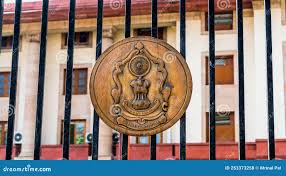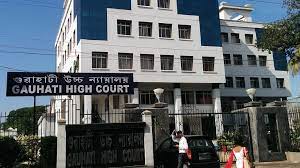It has been held that the circumstances concerned “must or should” and not “may be” established. It has been held that there is not only a grammatical but a legal distinction between “may be proved” and “must be or should be proved”. It has been held that the facts so established should be consistent only with the hypothesis of the guilt of the accused, that is to say, they should not be explainable on any other hypothesis except that the accused is guilty.
It is a settled principle of law that however strong a suspicion may be, it cannot take place of a proof beyond reasonable doubt.
It is relevant to note that the village Jawadi where PW-2 resides is 100 kms. away from the village of the appellants and deceased. It is further to be noted that his evidence is full of omissions and contradictions. Apart from that, he has admitted in this evidence that the IO Amritpal Singh (PW-11) was known to him for the last 4-5 years. In his evidence, PW2 has clearly admitted that though he had a telephone in his house which was in a working condition, he neither informed the family members of the deceased nor the police about the said extra-judicial confession. PW-2 further admitted that he did not convey any information of the said extra-judicial confession to the SHO, though he was known to him. PW-2 further admitted that one Mr. Gurcharan Singh was the Sarpanch of his village in those days. However, he did not ask the appellants to go and meet him.
From the evidence of PW-2, we find that it cannot be said that the extra-judicial confession is one which could be found to be credible. There appears to be no reason as to why the accused persons would go 100 kms. away and confess to him. Apart from that, his conduct also appears to be unnatural. Though IO Amritpal Singh (PW-11) was known to him and the telephone which was installed in his house was in a working condition, he did not find it necessary to inform him through telephone. We are, therefore, of the considered view that the courts below have erred in relying on the extra-judicial confession made to PW-2.
As already stated hereinabove, the relations between the appellant Manjit Kaur and this witness are strained. As such, the testimony of this witness, being an interested witness, will have to be scrutinized with greater caution and circumspection.
It appears to be improbable that, when appellant Manjit Kaur had herself threatened the deceased that he would no longer be alive, a real brother would permit the deceased to accompany her and another accused and, that too, when the accused was carrying a gun with her. We find that the evidence of this witness will have to be taken with a pinch of salt.
The cross-examination of PW-9 shows that, though the incident occurred on 3rd September 1998, his statement was recorded on 10th September 1998. His evidence is full of contradictions and omissions. The admission in the cross-examination itself speaks volumes of his high credentials. He has admitted that he, along with other accused, had been convicted for the offence under Section 307 of the IPC and had been sentenced to life imprisonment by the trial court, but had, however, been acquitted by the High Court. He has 19 further admitted that he had remained in jail for about 4 years in the murder case of one Gursewak Singh.
Though PW-9 has stated that on 3rd September 1998, accused Manjit Kaur had exhorted co-accused Pritinder Singh that Ravinder Singh was alone and he should be done away with, when the death of the deceased had occurred on the very next day, he did not find it necessary to inform anyone about it, including the police, till he was summoned to the Police Station on 10th September 1998.
It is to be noted that though the dead body of the deceased was found on 4th September 1998, the statement of Mal Singh (PW-2) to whom the alleged extra-judicial confession was made, was recorded on 9th September 1998. SI Amritpal Singh (PW-11) has admitted in his examination that Mal Singh (PW-2) was known to him. He has further stated that he did not know in how many cases of his Police Station Mal Singh was cited as witness. It is further to be noted that the statement of Jagtar Singh (PW-9), as already stated hereinabove, was recorded on 10th September 1998.
In the result, the appeals are allowed. The impugned judgment and order of the High Court dated 4th February 2010 and the judgment of the Trial Court dated 10th July 2001 are quashed and set aside.
SUPREME COURT JUDGMENT
Citation: 2023 STPL(WEB) 58 SC
PRITINDER SINGH @ LOVELY Vs. STATE OF PUNJAB
Criminal Appeal No. 1635 of 2010 with Criminal Appeal No. 1714 of 2010-Decided on 5-7-2023
Click to See Full Text of Judgment: 2023 STPL(WEB) 58 SC








